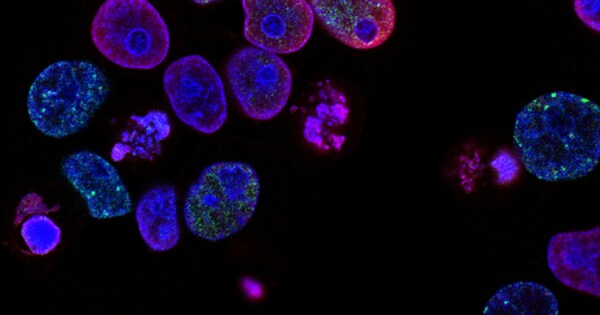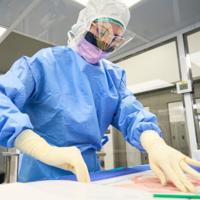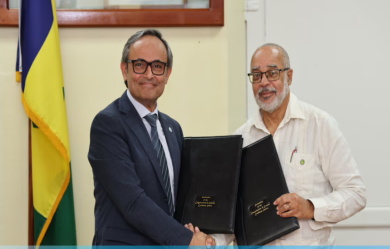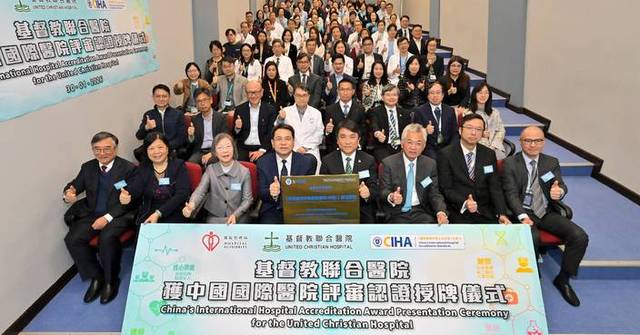Offering the best in lung cancer care

For many years, the lung cancer program at OSF HealthCare has been nationally recognized as one of the best programs in the country.
In the Society of Thoracic Surgeons database, OSF ranks in the 99.2 percentile for outcomes after lung cancer surgery. This places OSF in the top 15 lung cancer programs nationwide.
While a lot of this work has been done for years, the opening of the OSF HealthCare Cancer Institute in Peoria, Illinois, has added to the quality of care for patients across the Midwest. OSF and the University of Illinois College of Medicine-Peoria (UICOMP) have also expanded surgical capabilities in the Peoria region. Over 90% of all thoracic surgeries are minimally invasive. This means smaller incisions, quicker recoveries and less pain.
Richard Anderson, MD, FACS, is the Chair and Norman Estes Professor at UICOMP, a professor of clinical surgery, as well as a thoracic surgeon with OSF HealthCare.
Dr. Anderson says patients with cancer now have a dedicated CT scanner, MRI and PET (positron emission tomography) scanner specifically for cancer. This allows results and diagnoses to be given faster than ever before, which allows a treatment plan to be created much more quickly.
“We also brought new technology when we opened up the new (OSF Cancer Institute) building. We brought the robotic bronchoscopy ion robot, which allows us to be able to biopsy smaller lesions more accurately,” Dr. Anderson says. “It lets us be able to do more advanced staging in people with lung cancer, which we weren’t able to do before.”
Medicare didn’t approve lung cancer screening tests until 2016. While OSF has offered lung cancer screenings since 2015, a recent collaboration with DELFI Diagnostics Inc. was launched, aiming at reducing lung cancer rates. It’s a blood test which started in 18 OSF locations, with plans to expand across the entire Ministry. If the blood test indicates a potential concern, the patient will undergo further testing through a low-dose CT scan (LDCT).
“Our screening programs we do are low-dose, and that’s really what a screening test means. That it has low risk and gets us good, reliable results. Plus, it’s something that can be repeated, if necessary, while posing a minimal risk to patients,” Dr. Anderson says.
A cancer board, which is a team comprised of leaders in thoracic surgery, oncology, radiation oncology, pathology, radiology and pulmonary medicine, meets every week to discuss the best way forward in terms of care for patients with cancer that are being seen. The lung cancer program also allows cancer navigators to follow patients along the journey, providing care every step of the way.
The ion robot care is going to continue to expand. On average six biopsies are done a week currently at OSF Saint Francis in Peoria. By mid-2025, that number should quadruple. Proton beam therapy is another major care option for patients with cancer.
“We’re able to give radiation in much more concentrated doses at a very fixed point, with less damage to surrounding tissue. This helps us take care of cancer in patients who may not be the best surgical candidates,” Dr. Anderson says. “And they still get excellent results with that type of therapy. With the new proton beam therapy, that adds even more of that potential as we move forward in the future as well.”
“The scariest part of it”
“There’s usually no symptoms in early-stage lung cancer, it’s usually asymptomatic. When people really start to develop symptoms of a chronic cough, coughing up blood, or having an increased shortness of breath, usually that means the cancer has spread or has gotten bigger,” Dr. Anderson says. “Instead of being an early-stage cancer where they’d have a very good survival rate, it’s become an advanced-stage cancer, and their survival rates have gone down. However, some of the newer drugs have helped us improve the survival rate in more advanced-stage cancers than we could 10-15 years ago.”
OSF has been participating in the Society of Thoracic Surgery since 2006.
“We submit our results to the Society of Thoracic Surgeons database. For years, we’ve been a top performer in that database,” Dr. Anderson says. “We’re as respected when it comes to the database as some of the major places you would probably name.”
To learn more about the OSF lung cancer program, visit the OSF HealthCare website.
link








